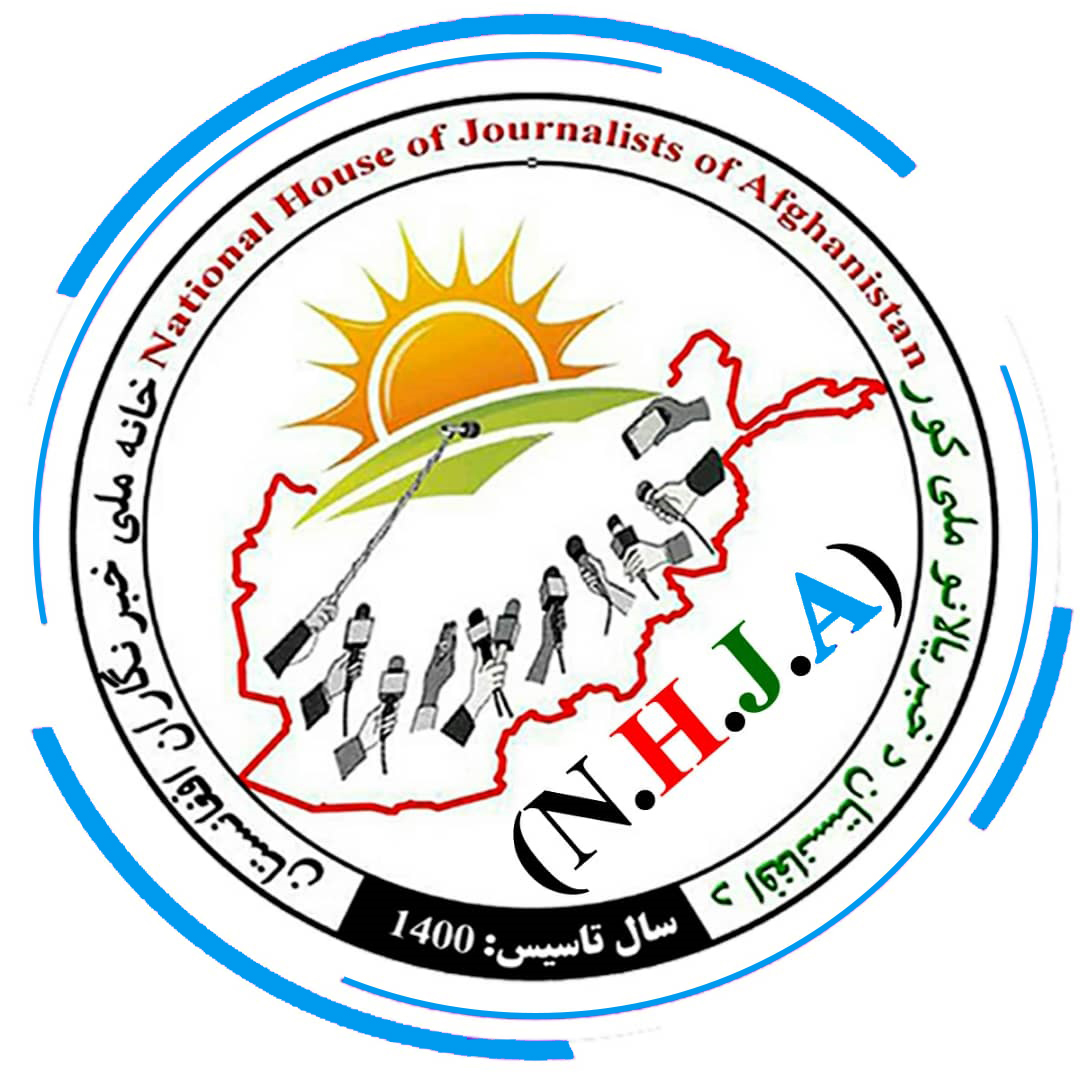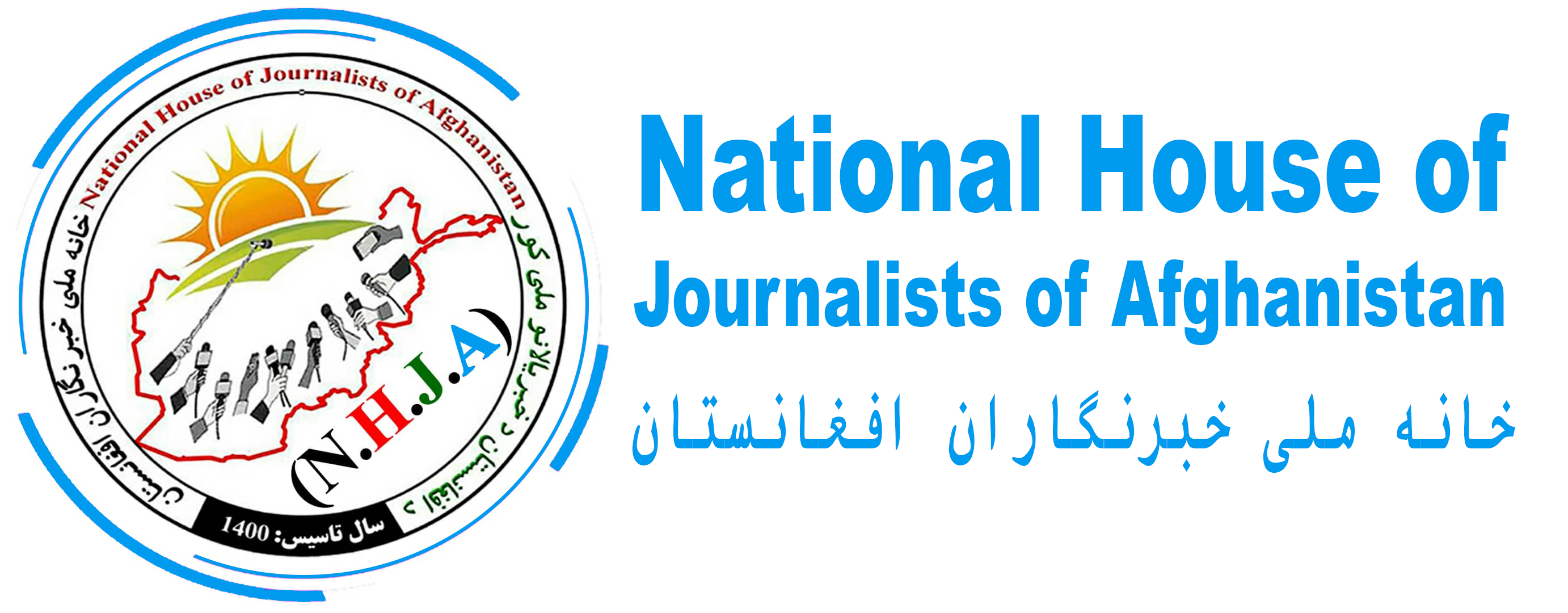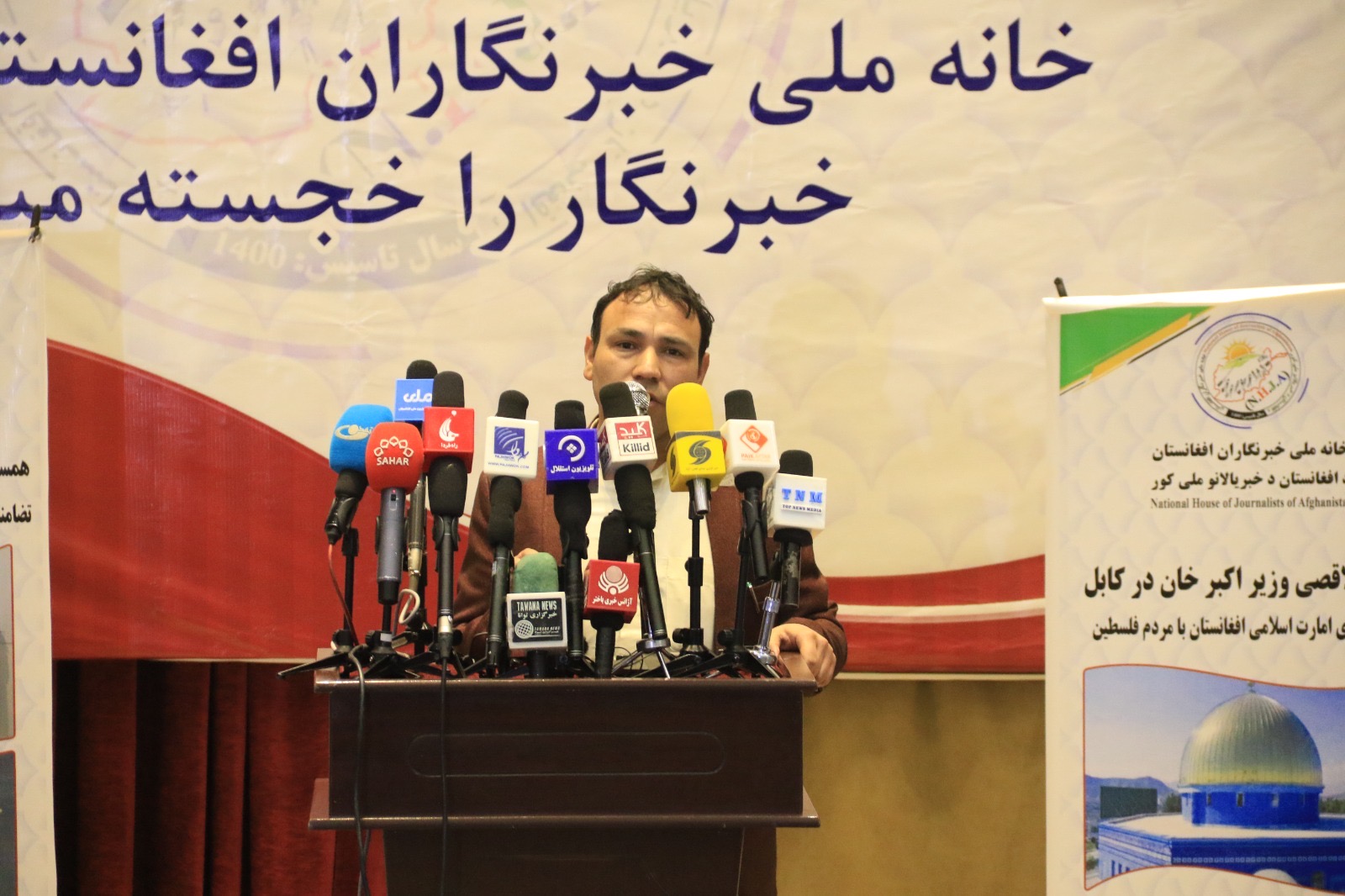
The National House of Journalists of Afghanistan commemorated the “27th of Hoot,” the National Journalists’ Day,
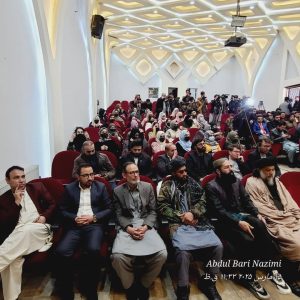
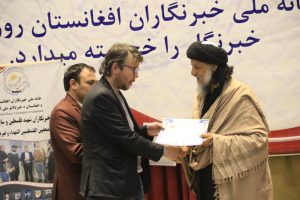
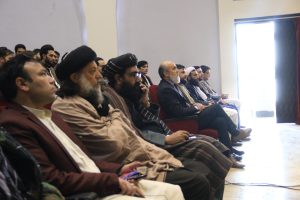

with a grand ceremony in Kabul. The event saw the participation of journalist support organizations, university professors and students, cultural figures, officials from the Islamic Emirate, and a group of media personnel and journalists. During the ceremony, nearly 100 journalists, professors, members of the National House, and distinguished students were honored and appreciated.
Sayed Yasin Mateen, founder and president of the National House of Journalists of Afghanistan, congratulated all journalists on the National Journalists’ Day and discussed the organization’s activities and programs. He highlighted the numerous challenges journalists face, particularly economic issues and difficulties in accessing information. Mateen expressed concern over the situation of Palestinian journalists, stating that the Israeli regime has martyred dozens of Palestinian journalists, while international human rights organizations and both national and international media have remained silent, which is a matter of regret and shame.
He urged the officials of the Islamic Emirate to cooperate seriously in providing accurate and timely information to the media and journalists to prevent the spread of rumors. Mateen also called for capacity-building opportunities for journalists through short-term and long-term training programs in Kabul and other provinces. He announced the signing of a cooperation agreement between two private universities to admit journalism students with a 70% discount and the organization of training courses for journalists in the current year, emphasizing that the National House of Journalists of Afghanistan strives to stand by journalists in all circumstances and provide more educational and cultural opportunities for them.
Following this, Ahmad Ershad Azimi, a professor at the Faculty of Journalism at Rana University, delivered an important speech on the role of journalists and the significance of the journalism profession. He emphasized the sacrifices journalists make in providing accurate and impactful information to society, stating:
“Journalists not only gather information from various sources and convey it to their audiences but also stand against imperialism and various threats to protect cultural heritage and societal values.”
He considered this day a blessed one and said that journalists should always be appreciated and respected, as their role in society is highly valuable. Azimi also announced four semi-free scholarships for enthusiasts in this field.
Najib Arman, news manager at Salam Watandar Radio, emphasized the importance of adhering to key journalism principles, stating that these principles should not be sacrificed due to daily issues and unprofessional pressures. He stressed that “adherence to journalism principles is a vital matter that must always be considered to properly fulfill our mission.”
Hanif Farzan, a professor at the Faculty of Journalism at Bakhtar University, also spoke about the importance of journalism work and the existing challenges in this field. He congratulated journalists and journalism students on this day, considering it a fortunate day and a symbol of freedom, honoring the relentless efforts and sacrifices of journalists in providing accurate and timely information. Farzan stated:
“A journalist is not just a word but a path; a path accompanied by many ups and downs that must be traversed with mission-mindedness and responsibility, taking firm and steady steps to avoid any slips.”
He described journalism as a “school” built on four fundamental pillars: balance, emotion, honesty and justice, non-partisanship and impartiality, and accuracy and correctness. Farzan also announced that Bakhtar University is offering two fully free (100%) scholarships and ten 80% scholarships to students in this field.
Subsequently, Hujjatullah Mojaddedi, head of the Afghanistan Independent Journalists Association, discussed the numerous problems Afghan journalists face and emphasized the importance of their efforts. He mentioned that journalists in the country face many challenges and obstacles, and journalist support organizations and the Islamic Emirate government have plans to reduce these problems. Mojaddedi welcomed the establishment of a “Journalists Support Fund” by the Ministry of Information and Culture and considered it an important step in supporting journalists’ rights.
Dr. Sayed Mohammad Baqer Kazemi, a university professor and experienced journalist, addressed the challenges of journalism from written and spoken aspects and emphasized the correct use of the country’s official languages. He stated:
“Many journalists and media outlets face problems in correctly using Persian and Pashto languages, which requires serious attention and correction.”
Kazemi added:
“The Persian language, whose cradle is Afghanistan, as well as Pashto and Uzbeki languages, must be used accurately and correctly in media and news. Journalists must be the true guardians of their languages and avoid any misuse of foreign languages.”
Sayed Gharibullah Sadat, a political analyst, emphasized the importance of media and journalism in the Islamic world and Afghanistan. He commemorated Palestinian journalists and stated that the Organization of Islamic Cooperation should take more serious measures to address the situation of Palestinian journalists. Sadat added that Palestinian journalists, with their sacrifices in conveying the truth to the world, have sacrificed their lives for their mission and deserve appreciation and respect.
Sayed Hashim Jawadi Balkhabi, a member of the Islamic Emirate, introduced journalists as being at the forefront of raising awareness and said:
“Journalists stand against the propaganda of Western media and always strive to convey the realities to the people by publishing accurate and fair news.”
At the end of the ceremony, more than 100 journalists, university professors, and outstanding journalism students were honored for their efforts and achievements in the field of media and journalism. The ceremony, attended by various officials, media representatives, and scientific and cultural figures, emphasized the importance of supporting journalists and media activists and called for improving their situation.
Additionally, Mohammad Milad Kamal, a university professor, congratulated journalists on this day and emphasized their strong motivation in these challenging conditions. He stated:
“In the current situation where journalists in Afghanistan face numerous problems, their motivation and relentless efforts to inform the public remain prominent and commendable.”
The ceremony concluded with prayers for a bright future in Afghanistan’s journalism field.
